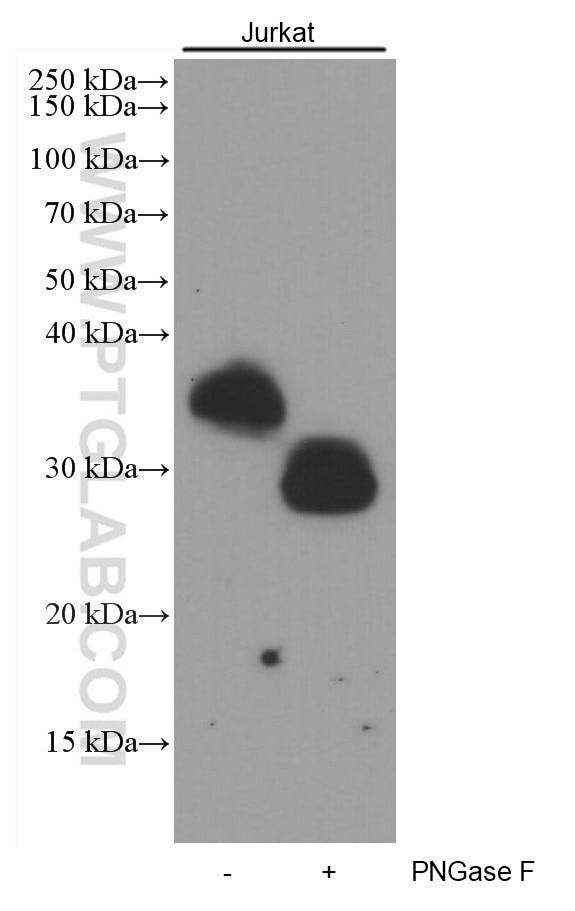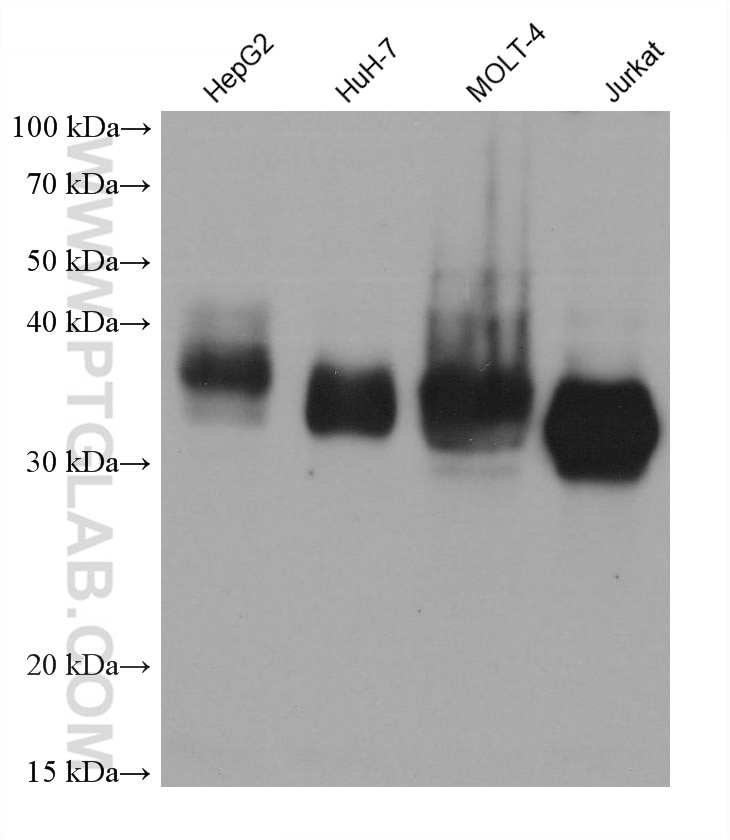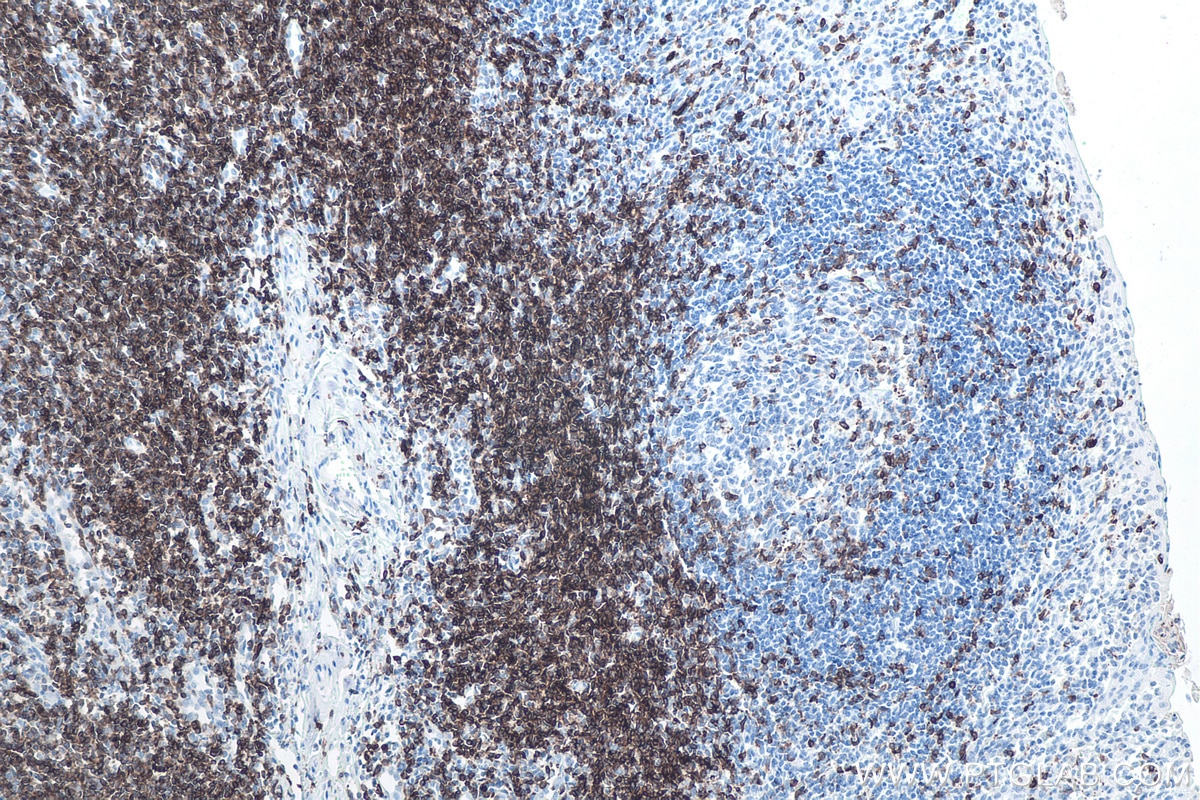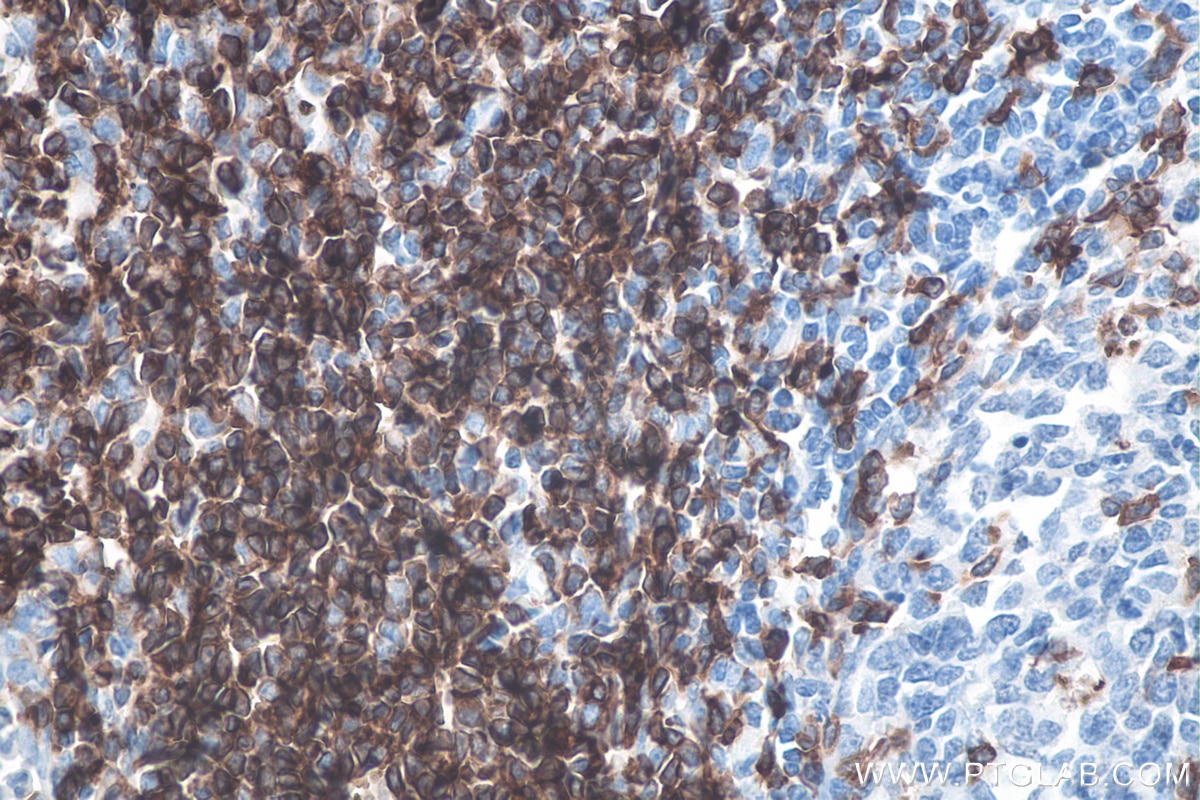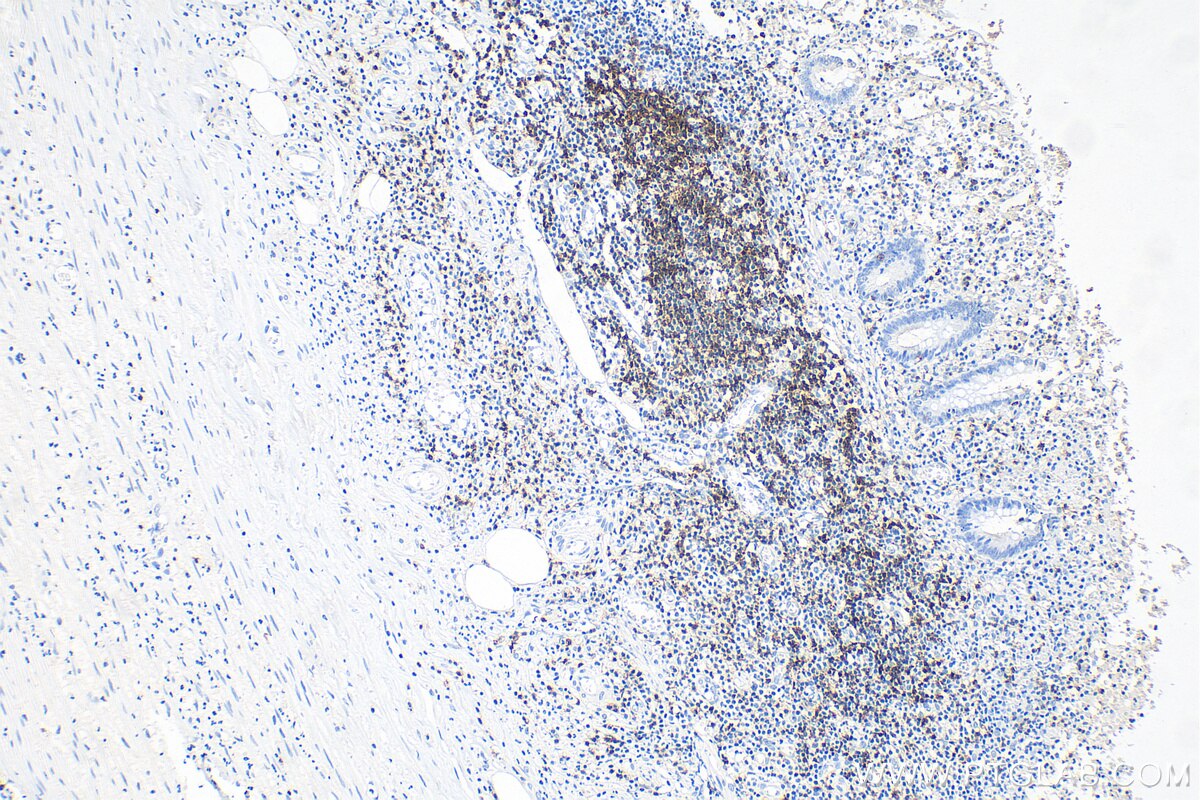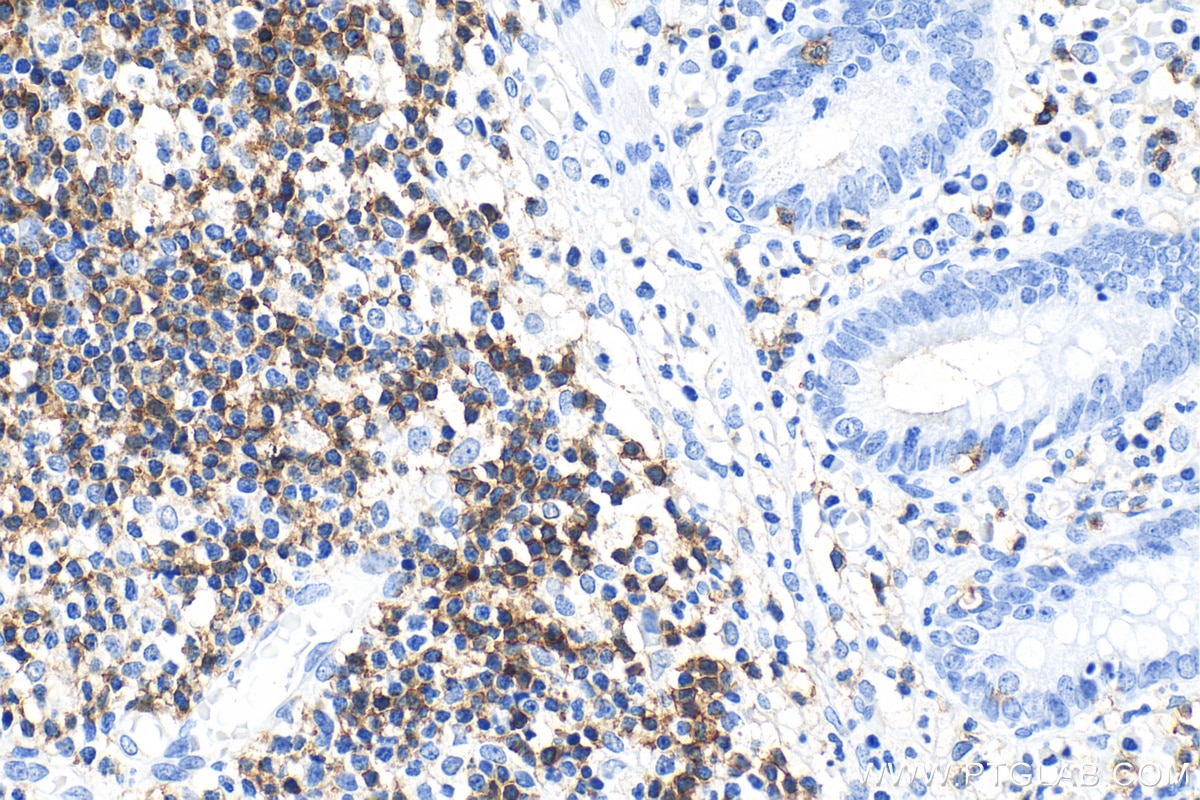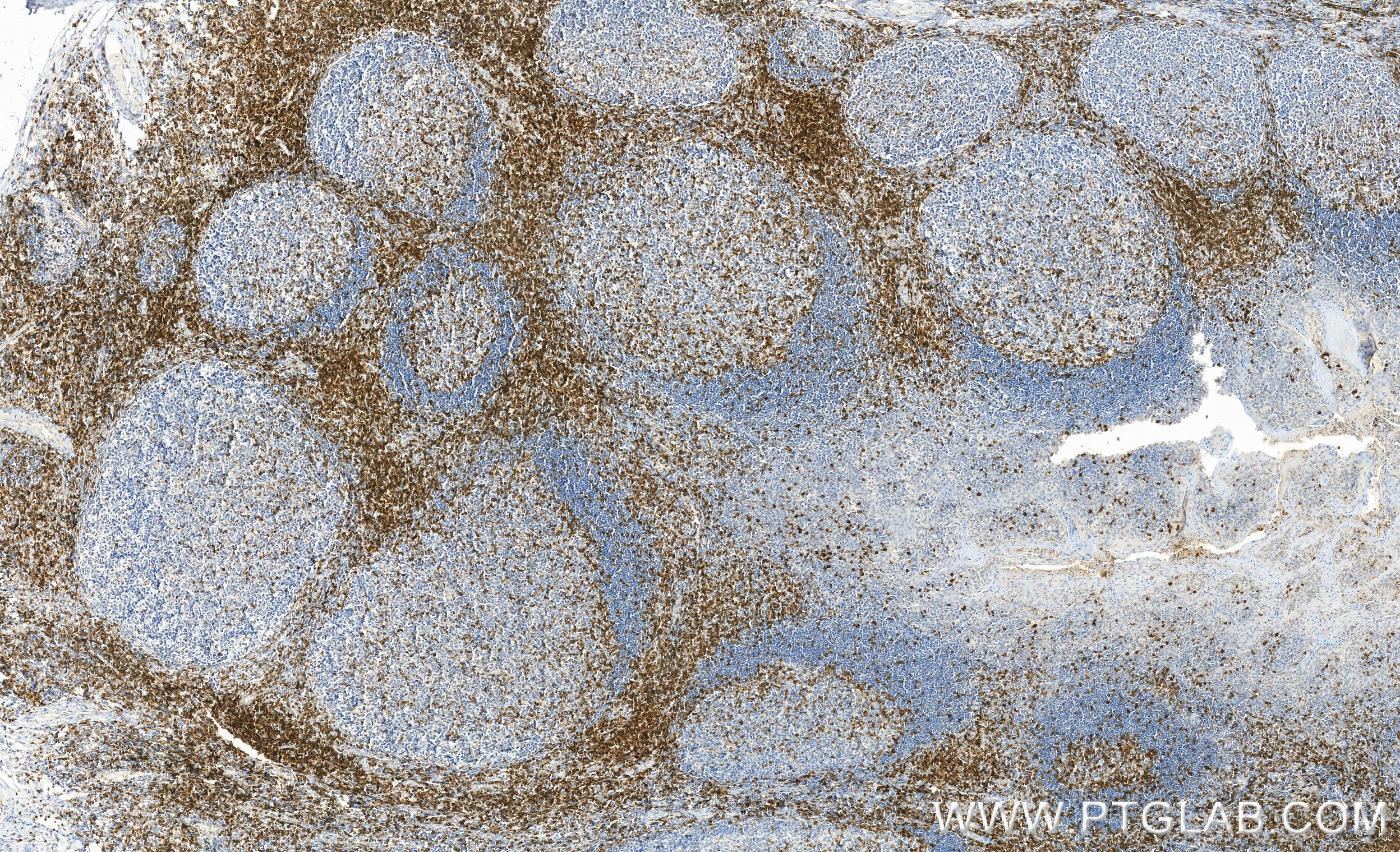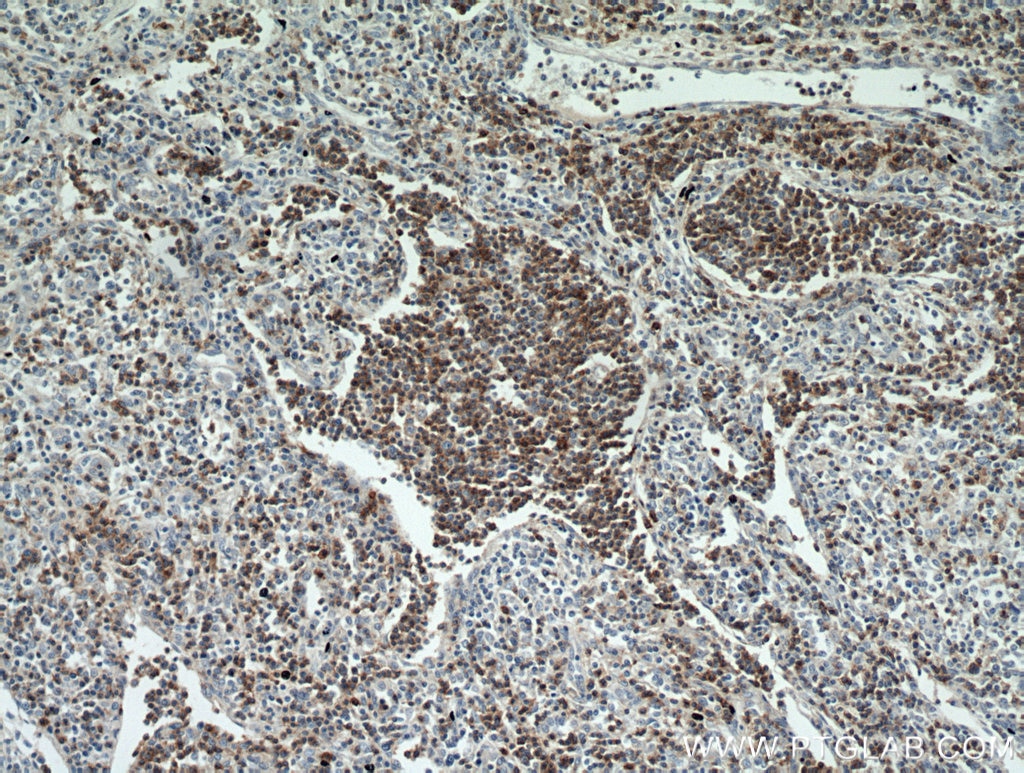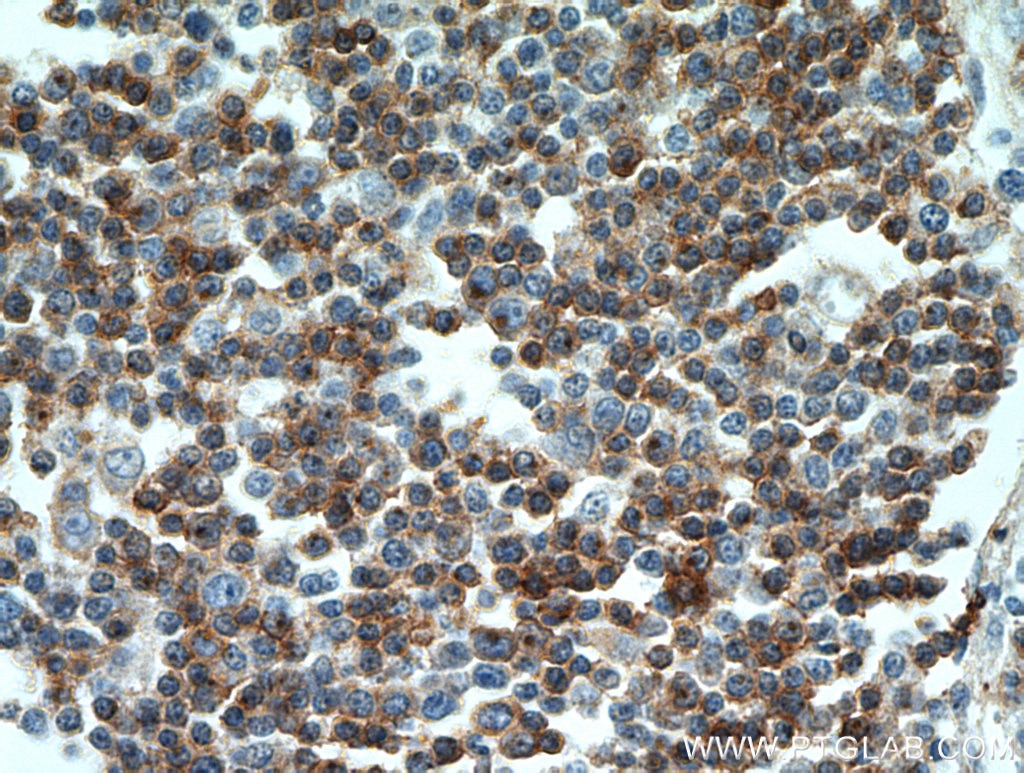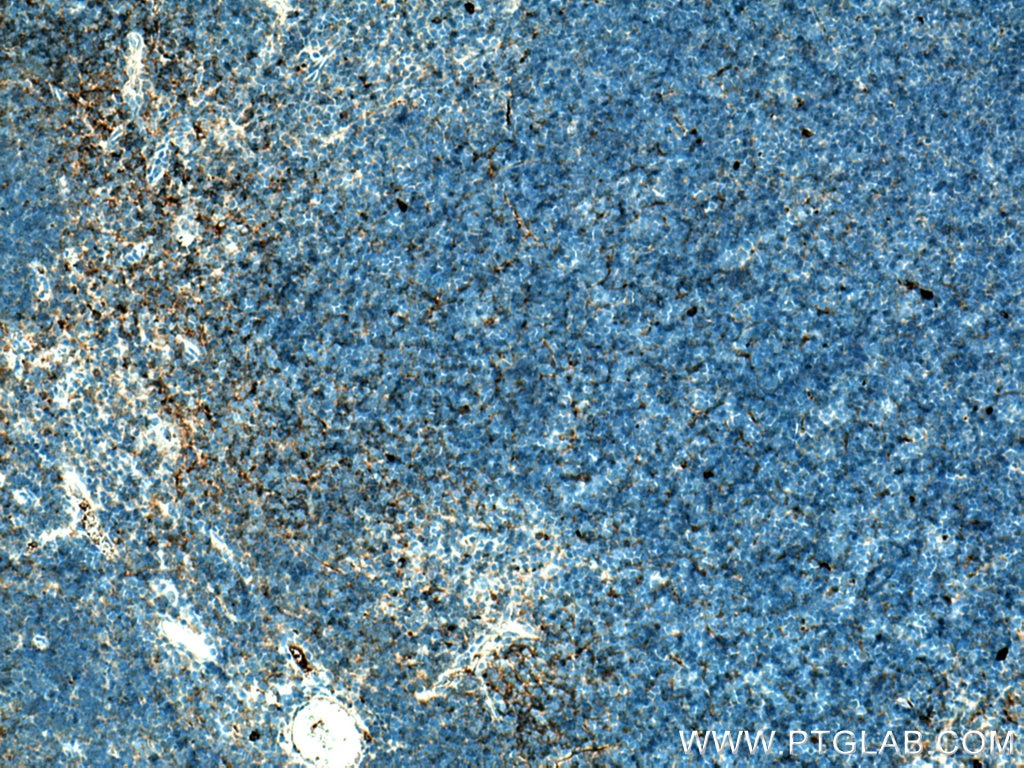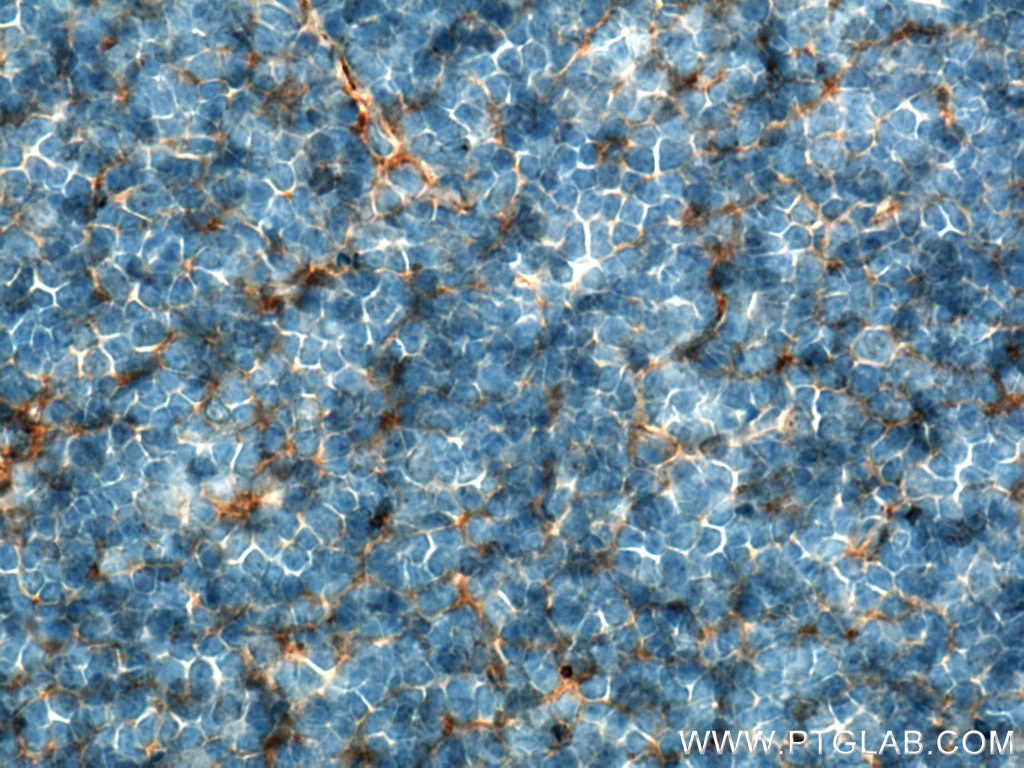Validation Data Gallery
Tested Applications
| Positive WB detected in | Jurkat cells, HepG2 cells, HuH-7 cells, MOLT-4 cells |
| Positive IHC detected in | human tonsillitis tissue, human appendicitis tissue, human lymphoma tissue, mouse thymus tissue Note: suggested antigen retrieval with TE buffer pH 9.0; (*) Alternatively, antigen retrieval may be performed with citrate buffer pH 6.0 |
Recommended dilution
| Application | Dilution |
|---|---|
| Western Blot (WB) | WB : 1:1000-1:4000 |
| Immunohistochemistry (IHC) | IHC : 1:1000-1:4000 |
| It is recommended that this reagent should be titrated in each testing system to obtain optimal results. | |
| Sample-dependent, Check data in validation data gallery. | |
Product Information
60209-2-Ig targets CD7 in WB, IHC, ELISA applications and shows reactivity with human, mouse samples.
| Tested Reactivity | human, mouse |
| Host / Isotype | Mouse / IgG1 |
| Class | Monoclonal |
| Type | Antibody |
| Immunogen | CD7 fusion protein Ag1805 相同性解析による交差性が予測される生物種 |
| Full Name | CD7 molecule |
| Calculated molecular weight | 240 aa, 25 kDa |
| Observed molecular weight | 34-36 kDa |
| GenBank accession number | BC009293 |
| Gene Symbol | CD7 |
| Gene ID (NCBI) | 924 |
| ENSEMBL Gene ID | ENSG00000173762 |
| RRID | AB_2881355 |
| Conjugate | Unconjugated |
| Form | Liquid |
| Purification Method | Protein G purification |
| UNIPROT ID | P09564 |
| Storage Buffer | PBS with 0.02% sodium azide and 50% glycerol , pH 7.3 |
| Storage Conditions | Store at -20°C. Stable for one year after shipment. Aliquoting is unnecessary for -20oC storage. |
Background Information
CD7 is a type I transmembrane glycoprotein expressed on thymocytes and mature T cells. It is the most reliable clinical marker of T-cell acute lymphocytic leukemia.
Protocols
| Product Specific Protocols | |
|---|---|
| WB protocol for CD7 antibody 60209-2-Ig | Download protocol |
| IHC protocol for CD7 antibody 60209-2-Ig | Download protocol |
| Standard Protocols | |
|---|---|
| Click here to view our Standard Protocols |
